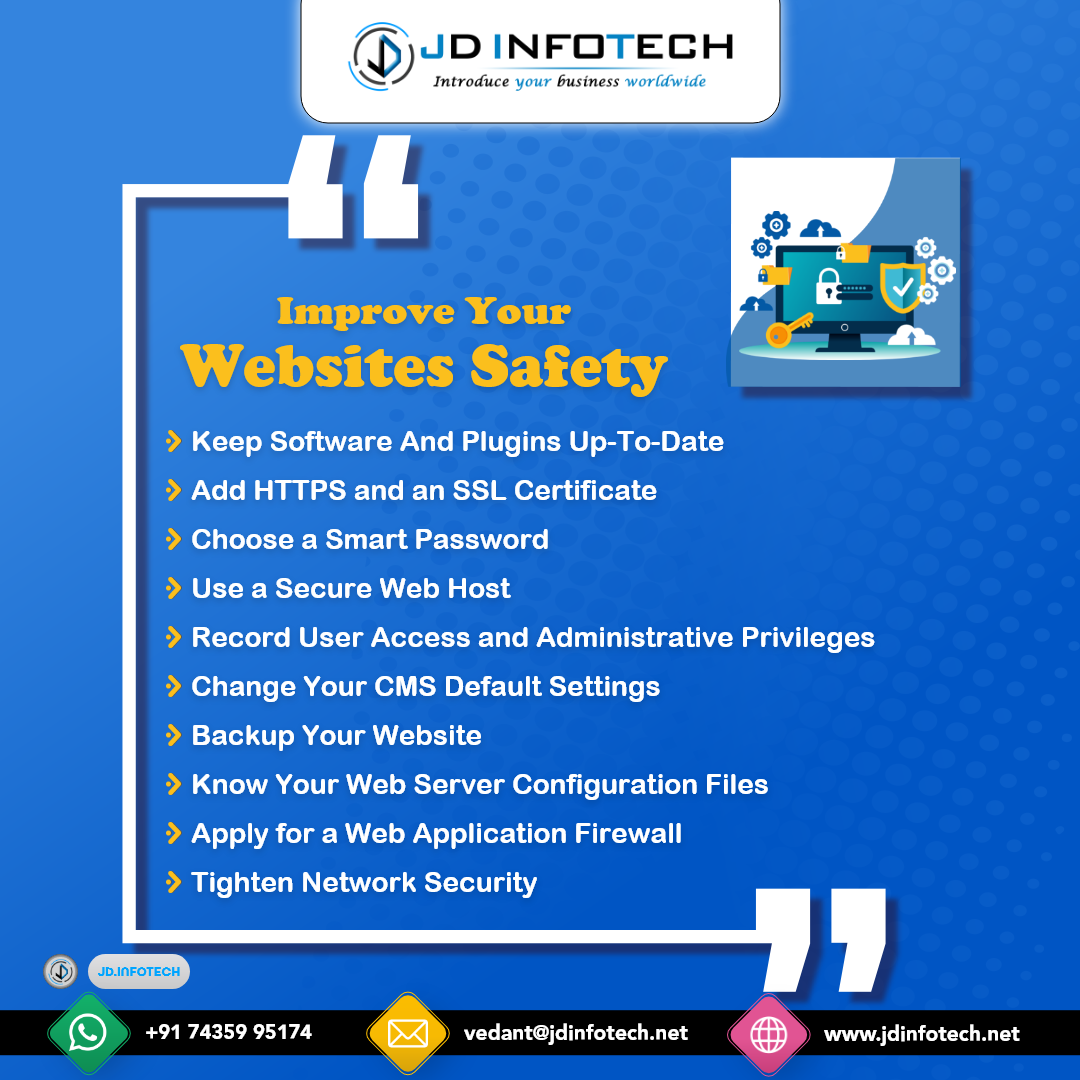In today's interconnected world, website security is of utmost importance. As businesses and individuals rely heavily on their online presence, it's crucial to take proactive measures to safeguard your website from potential threats. By implementing robust security measures, you can protect sensitive data, maintain customer trust, and ensure the smooth functioning of your digital platform. Let's explore the significance of website security and some essential steps to fortify your online fortress.
#Cybersecurity: Cyberattacks are prevalent and can cause significant damage to your website and reputation. Implementing a comprehensive cybersecurity strategy is vital to mitigate risks and prevent unauthorized access. Ensure your website has robust firewalls, regular security audits, and strong encryption protocols in place.
#SSL Certificate: An SSL (Secure Sockets Layer) certificate is crucial for establishing a secure connection between your website and users' browsers. It encrypts sensitive data, such as login credentials and payment information, preventing interception by hackers. Displaying the "https" protocol and a padlock symbol instills trust in your visitors and boosts your website's security.
#Regular Updates: Staying up to date with software updates is crucial for maintaining website security. Content management systems (CMS) like WordPress or Drupal release regular security patches to address vulnerabilities. Ensure that your website's CMS, themes, and plugins are regularly updated to protect against potential exploits.
#Strong Passwords: Weak passwords are an open invitation for hackers. Encourage your users to create strong, unique passwords that include a combination of uppercase and lowercase letters, numbers, and special characters. Additionally, consider implementing two-factor authentication (2FA) for an extra layer of security.
#Backup and Recovery: Despite your best efforts, a security breach can still occur. Regularly backing up your website's data is essential to mitigate the impact of such incidents. Should your website experience a security breach or data loss, having a recent backup will allow you to recover quickly and minimize downtime.
#Secure Hosting: Choose a reputable and secure hosting provider for your website. Ensure they offer advanced security features such as DDoS protection, intrusion detection systems, and regular server monitoring. A secure hosting environment reduces the risk of unauthorized access and helps safeguard your website against various threats.
#Vulnerability Scanning: Conduct regular vulnerability scans to identify potential weaknesses in your website's security. These scans can help uncover outdated software, misconfigurations, or other vulnerabilities that could be exploited by hackers. Addressing these issues promptly strengthens your website's security posture.
#Educate Users: Educating your users about best security practices is essential. Provide guidelines on creating strong passwords, avoiding suspicious links or attachments, and recognizing phishing attempts. Regularly communicate security updates and reminders to help users stay vigilant and protect their own information.
#Monitor and Respond: Implement a robust monitoring system to detect any suspicious activity on your website. Real-time alerts and log analysis can help identify potential threats early on. Establish an incident response plan to quickly respond and mitigate any security breaches, minimizing potential damage.
Remember, website security is an ongoing process. It requires continuous monitoring, regular updates, and a proactive approach to stay ahead of emerging threats. By prioritizing website security and adopting best practices, you can create a safe and trustworthy digital environment for your business and users. Protecting your website's integrity is an investment that pays off in terms of data security, customer trust, and sustained success in the online realm.
 +91 997 456 6994
+91 997 456 6994 +61 424 065 034
+61 424 065 034


